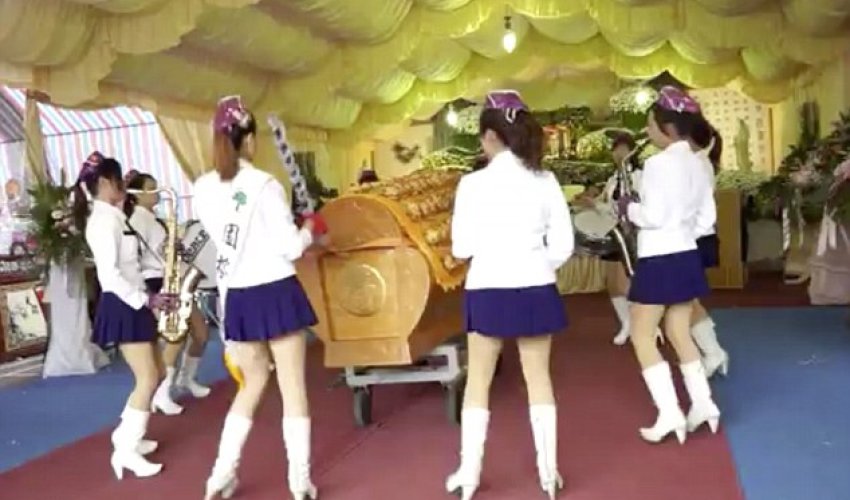Bizarre craze for all-female funeral marching bands sweeping Taiwan - PHOTO+VIDEO

Funerals don't always have to be sombre occasions as this group of musicians shows.In Taiwan families are taking a different approach to saying goodbye to their loved ones - by hiring all-female marching bands to perform during the service. Complete with white Go-go boots and matching uniforms, the women twirl batons and play instruments while marching around the dead body.The service, which lasts two to three hours, has been set up by Yuan-Rong Life which has a popular marching troupe called 'Xiu Juan Female Music Band'. For small services Yuan-Rong recommends less than eight band members - costing £27 each - but for larger memorials more.In New Orleans, upbeat tunes are often played at Jazz Funerals including popular songs like When The Saints Go Marching In. It is not the first time Taiwan has raised a few eyebrows with their taste of funeral ceremonies. Strippers are sometimes hired who dance for the deceased.For a modest fee the scantily-clad women arrive on the neon-lit back of a diesel truck, dubbed an Electric Flower Car, to gyrate erotically in front of the departed and his mourners.The Taiwanese phenomenon is labelled by some as scandalous, but many hail it as an important part of the grieving process - and the perfect way of sending off their loved ones with a smile.Authorities were trying to crack down on the mainly rural practice documented by anthropologist Marc L Moskowitz in his 40-minute documentary which sheds light on the folk tradition.He admitted he had not seen any 'full stripping' himself because they knew he was filming, but everyone he spoke to had seen complete nudity.The working-class associated Electric Flower Cars came to the fore in Taiwan, apart from in its northern capital Taipei, in the early 1980s.During his research, Moskowitz said he heard several explanations as to why people hired them for funerals.One theory is that strippers were used to bribe mourners to turn up to funerals so there would be more people in attendance and therefore more honour given to the deceased. He also believed that it could simply be popular because it was the only form of live entertainment for many of the rural poor community.(dailymail.co.uk)ANN.Az
Similar news
Similar news




































 Photo
Photo 



 Video
Video 

